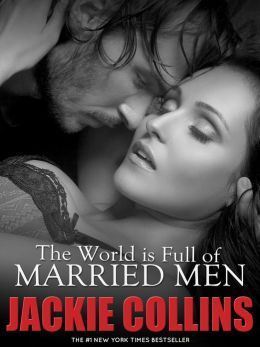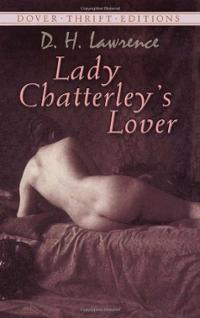Banned Books Month: Guest Post from Rhiannon Hart: “What’s the matter? Don’t you have married men there?” — Australia and the banned book
Australia in the twentieth century was a playground for wowsers – or so it would seem when consulting the array of books deemed unsuitable for the public between the 1920s and 1970s. The censors had an easy time of it. As an island continent with few printing presses in the former half of the twentieth century, books had to be imported into Australia. Anything salacious could be, and was, seized by customs. Over 15,000 different books were funnelled away from the public eye. The official line was books that were ‘blasphemous, indecent or obscene’ would be banned. The list of titles makes almost gleeful reading: ROAD FLOOZIE, THE HOUSE KEEPER’S DAUGHTER (‘She was curvy and careless and lived down the hall’), HONEY, NOT NOW. The idea that such twee-sounding books could have a corrupting influence on the public seems laughable now. What’s so alarming about a little smut, after all.

Chances, Inc., 2013 Edition, May 2013.
But what if it wasn’t the smut that got the censored riled? In 1968, Jackie Collins published her first novel, THE WORLD IS FULL OF MARRIED MEN, about a married man who has an affair and his wife who subsequently divorces him. Within a week it was a best-seller in Great Britain and America. But in Australia? Banned. Collins’s publishers told her it was because of all the four-letter-words and advised her to take them out. Collins complied, but the book remained banned. Collins quipped, ‘What’s the matter? Don’t you have married men there?’
Perhaps most famously–or infamously–was the banning of D. H. Lawrence’s LADY CHATTERLEY’S LOVER (1928), the story of a frustrated, posh wife of an impotent man falling into the arms and bed of the gamekeeper. It was banned in Great Britain until 1960, when Penguin, the publisher, tested the new obscenity laws. The law said a publisher could escape conviction if they could prove that an ‘obscene’ book had literary merit. The trial caught the public’s attention, and, when Penguin won, it paved the way for a slew of previously banned books to be reclassified.

Dover Publications, Reprint Edition, September 2006.
And in Australia, where LADY CHATTERLEY’S LOVER had been banned since publication? Despite the British ruling, it remained banned. The subsequent book THE TRIAL OF LADY CHATTERLEY’S LOVER, which described the British trial, was also banned. The Australian public, then, was to be protected from the corrupting influences of the West.
But it wasn’t only smut and sex that caught the censors’ eyes. Frequently seized were books that were anti-Vietnam war, pro-gay and pro-drug. The banned titles reflected the government’s stance on these issues. Perhaps saddest of all are the pro-gay books on the list, THE HOMOSEXUAL OUTLOOK: A Subjective Approach and THE HOMOSEXUAL HANDBOOK in particular. Sad, because while the ban has ended on these books, the puritanical streak that inspired their censorship still runs deep in Australian culture, and is evident in the previous and present governments’ stance on equal marriage. (Unless you count Kevin Rudd and the Australian Labor Party’s last minute pre-election about-face, perhaps more strategic than anything else.) The new Prime Minister Tony Abbott sees the push for equal marriage as ‘the fashion of the moment’ and sees no reason to make ‘radical changes’: ‘I’m not saying our culture, our traditions are perfect but we have to respect them.’ Same-sex Australians can marry in Canada, New Zealand, England, Wales, parts of the United States and many countries across Europe and South America. But unlike Israel and the Netherlands, the Australian government won’t recognise the marriages made outside their territory.
Consider THE WORLD IS FULL OF MARRIED MEN and LADY CHATTERLEY’S LOVER alongside THE HOMOSEXUAL OUTLOOK and other pro-gay books of the era. What if it wasn’t the sexual activity itself that caused the banning, but who was engaged in it? LADY CHATTERLEY’S LOVER caused ripples around the world in the late 1920s due to its depiction of a cross-class, extramarital love affair. Not only that, but it portrayed a woman who actively sought out sexual satisfaction. THE WORLD IS FULL OF MARRIED MEN is a racy pot-boiler that the novelist’s father couldn’t bear to read, but might it have been the novel’s divorce theme that the censor objected to after all the rude words were taken out? Or was it the title’s pronouncement of a world full of married men and the implication of sexual adventures with said men?
It’s difficult to say what was behind the strict, moralistic approach to book censorship during this time as there were no formal guidelines followed by censors. It seem doubtful that they even read the books they confiscated. Most censorship was done on the spot as cargo and luggage was searched. Booksellers weren’t made privy to which titles were objectionable and often imported banned books unknowingly. The state of New South Wales attempted to clarify things with the so-called ‘Average Householder Test’: is the book in question acceptable reading matter for his family? And there is little doubt that this hypothetical householder was a ‘he’. It is unsurprisingly, then, that female sexual freedom and homosexuality were objected to in a society that privileged marriage, patriarchy and the home.

Random House Australia, September 2013.
There was bound to be a gaffe that exposed Australia’s vehement stance on censorship, and it came when CATCHER IN THE RYE was banned in 1957. It had been circulating freely in Australia since its publication in 1951 until a censor felt it had ‘indelicate, indecent and almost blasphemous references’. A copy was seized from the Parliamentary Library, but when it came out that the book had been a gift from the United States Ambassador as an example of the country’s fine literature, it caused huge embarrassment for the Australian government.
The reign of what has been dubbed the Naughty Books Brigade came more or less to an end when the liberal Whitlam government came to power in 1973. But a strong wowser tendency remains simmering beneath the surface of Australian society, and it’s unlikely to dissipate under a new conservative government that sees no reason for ‘radical change’.

Rhiannon Hart.
Rhiannon Hart is the author of two fantasy novels for teens, BLOOD SONG and BLOOD STORM. Her first love was Jareth the Goblin King at the tender age of eight. She wrote fan fiction in high school but she’d never admit to it out loud, so don’t ask. Hailing from Melbourne, Australia, she’s now a newly minted Londoner, where she works in publishing.








